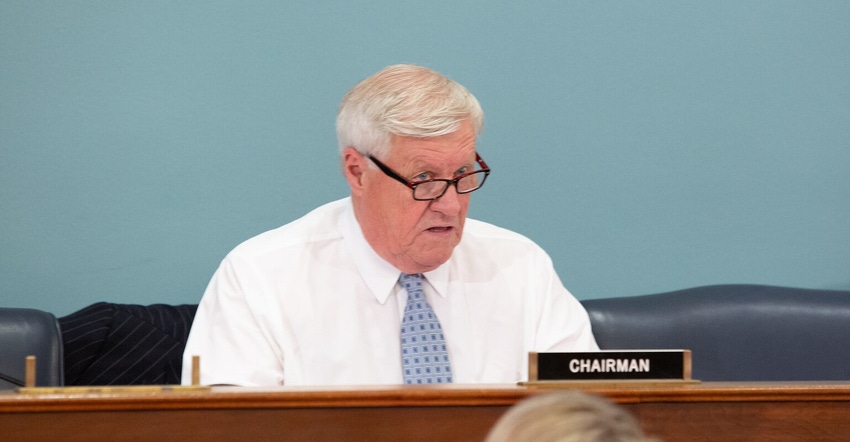Stopgap measure requires USDA to detail how MFP payments are spent across commodities and states.

The House advanced a stopgap funding bill on Thursday to avoid a government shutdown ahead of Oct. 1. Despite farmer trade aid payments being caught in the crosshairs leading up to the vote, the final continuing resolution (CR) package voted on by the chamber offered the funding, but with some strings attached.
The bipartisan bill includes funding for the U.S. Department of Agriculture’s Market Facilitation Program (MFP) after House leaders earlier in the week were considering removing language to authorize the Commodity Credit Corp.’s (CCC) replenishment of funds to greenlight the MFP payments.
USDA will be able to offer funds to farmers, but not without offering greater transparency of those payments to farmers first. The CR requires that new funds won’t be added to CCC until the secretary of agriculture submits a report no later than Oct. 31, 2019, to the appropriations and agriculture committees of both chambers.
The report must include estimates for all MFP payments in calendar years 2018 and 2019 and “projected payments in calendar year 2020 resulting from the calendar year 2019 program that include state-by-state, commodity-by-commodity -- including specialty crops -- analysis of the trade damage caused by retaliatory tariffs and, separately, by non-tariff trade barriers, including dumping, on U.S. agricultural producers and an accounting of any commodity purchases made from substantially foreign-owned companies or their subsidiaries,” the official language reads.
JBS and Smithfield came under fire during the first round of trade mitigation assistance in 2018 for receiving payments.
Although the measure advanced on the House floor with a bipartisan vote of 301-123, with 76 Republicans voting in favor of the stopgap, political frustration was still voiced during a House Agriculture Committee subcommittee hearing on Thursday morning from members on both sides of the aisle.
House Agriculture Committee ranking member Michael Conaway (R., Texas) called it “shameful” for the body to use farmers as a political pawn and said the process now can be used as a “weapon for both sides to use.”
Congress put restrictions on CCC several years ago after criticisms that then-secretary of agriculture Tom Vilsack was filtering additional disaster aid funds to help Arkansas farmers when Sen. Blanche Lincoln (D., Ark.) was facing a tough re-election bid. Conaway said this current attempt to limit CCC funds was different because it affected promises already made with the previously announced MFP payments.
House Agriculture Committee chairman Collin Peterson (D., Minn.) said it was Senate Republicans who originally put the CCC restrictions in place when they refused to bring up a disaster bill in the Senate.
Following the announcement of the deal, Peterson thanked speaker of the House Nancy Pelosi (D., Cal.) and the rest of House Democrat leadership for ensuring that farmers can have certainty that this assistance will continue.
“The call for more transparency in this program is a good one, and I appreciate their willingness to ensure that help gets out the door in a timely manner to the farmers who need it while at the same time enabling the taxpayer to see where those funds are going,” Peterson said in a statement.
Meanwhile, during the hearing, Conaway criticized the extra workload placed on USDA, especially as the agency is trying to roll out the new farm bill.
Conaway said House Democrats should not be thanked for preserving the CCC funds for farmers.
“It’s ironic that, as news was released about the budget deal, some are implying that House Democratic leadership is somehow to be thanked, apparently for failing to follow through on the threat to do serious harm to rural America,” Conaway said in a statement Thursday morning. “That’s akin to Texans thanking Santa Anna for making Texas a republic. The good news is the Democrats failed in their effort to use our hard-working farm and ranch families as pawns in their obsessive vendetta against the President."
About the Author(s)
You May Also Like





